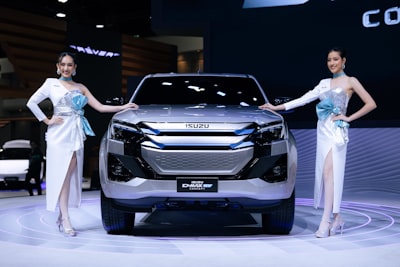Nissan’s Bold EV Export Strategy: What It Means for Global Electric Car Trends
As electric vehicles (EVs) become central to the future of transportation, Nissan’s announcement to start exporting China-manufactured electric vehicles in 2026 marks a pivotal moment for the automotive industry. The shift signals changing manufacturing and trade dynamics, growing competitiveness among EV manufacturers, and intensifying regional market battles—particularly in Southeast Asia and the Middle East, where demand for affordable yet advanced electric cars is rising.
Why Is Nissan Exporting EVs from China?
- Cost-Effective Manufacturing: China’s mature EV supply chain enables carmakers like Nissan to benefit from lower production costs and advanced battery technologies. This competitiveness is essential as Nissan faces stiff rivalry from global and Chinese automakers.
- Strategic Global Reach: Focusing on emerging markets such as Southeast Asia and the Middle East helps Nissan tap into regions less dominated by Western automakers and where rapid urbanization is fueling EV interest.
How Will China-Made Nissan EVs Compete Globally?
- Price and Performance: Chinese factories offer advantages in cost, without sacrificing quality or technological edge, making Nissan’s EVs more attractive to price-sensitive consumers.
- Design for the Region: The N7 electric sedan, designed and developed by Nissan’s China joint venture, is tailored for the features and needs specific to these new markets, from long-range capabilities to connectivity options.
- Partnerships and Innovation: Collaborations with Chinese talent and suppliers mean accelerated innovation, which can set Nissan apart in rapidly evolving segments.
What Does This Mean for the Southeast Asian and Middle Eastern EV Markets?
- Driving Down EV Prices: Increased competition from affordable, high-quality vehicles could jumpstart adoption and make electric vehicles more accessible.
- EV Infrastructure Growth: Anticipated sales boost may motivate local governments and companies to expand charging infrastructure and EV incentives.
- Regional Brand Rivalries: As Nissan pushes into new territories, it will face not only Tesla and European brands but also fast-growing Chinese manufacturers like BYD, NIO, and Geely.
The Global Impact: What to Watch for
- Shifting Supply Chains: Japanese, American, and European brands may follow Nissan’s lead, intensifying the use of China as an EV export hub.
- Technology Leapfrogging: Cross-border collaborations could accelerate the global standard for software, connectivity, and battery tech.
- Policy Reactions: Destination markets might implement tariffs or local-content requirements in response to the influx of Chinese-made cars.
Frequently Asked Questions
Q: Why are Japanese automakers like Nissan choosing to export from China instead of Japan?
A: China offers cost advantages, an advanced EV ecosystem, and close proximity to materials, making it attractive for export-oriented production.
Q: Will China-made EVs be as reliable as those made in Japan or Europe?
A: Chinese factories meet global standards, and joint ventures ensure that international brands maintain quality and reliability.
Q: How will this impact EV prices in emerging markets?
A: Increased competition should lower prices, giving consumers more affordable access to new technology.
Key Takeaways
- Nissan’s 2026 plan to export China-made EVs targets high-growth regions,
- Likely to spark competitive pricing and technology innovation across Southeast Asia and the Middle East,
- May prompt other automakers to reconsider global manufacturing and export strategies.
Are you considering an EV purchase or want to know how exports from China could influence your options? Stay tuned for updates as Nissan and its rivals reshape the future of electric mobility!

Comments
No comments yet. Be the first to comment!